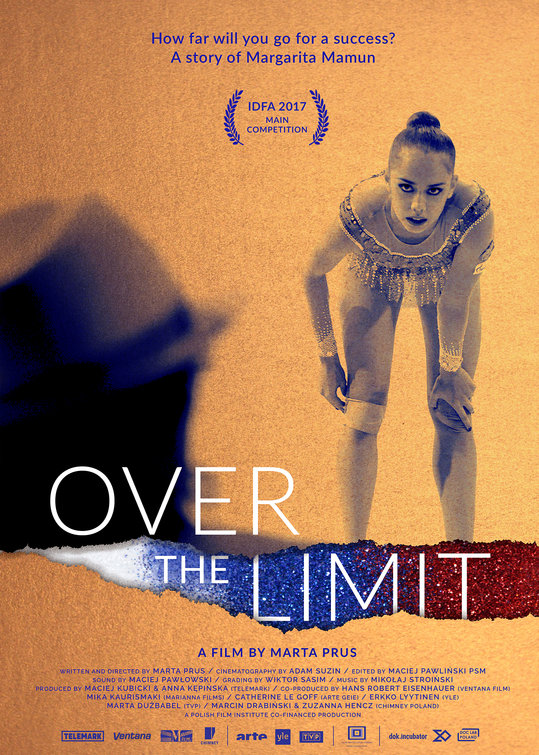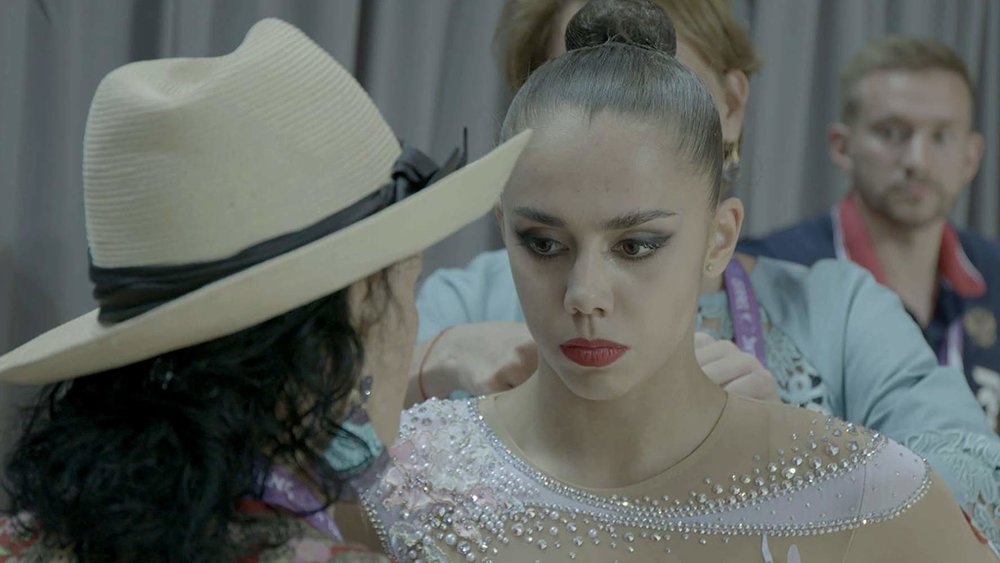Over The Limit (2018)


SHOULD I SEE IT?
YES
Fans of sports films will get a completely different experience than they are used to, while watching Marta Prus’ debut film.
Margarita Mamun is one of the most interesting documentary subjects of recent memory. This story, this journey, told without narration, is about as easy a story to root for as you are ever going to find.
Unflinching, Over the Limit deserves praise for not being afraid to show the abusive practices Mamun is subjected to, as well as her resilience in overcoming those challenges to compete in the Olympics.
NO
Shot in a cinema vérité-style, there is no narration, no title cards, just assembled footage; an approach which frustrates a fair number of moviegoers.
Folks, I’m not going to lie: This, from an emotional standpoint, can be a tough watch when you see the type of “coaching” Mamun endures in her preparations.
Honestly, I wish there was more of this. At 74 minutes, the film feels like it might be too short.
OUR REVIEW
At a brisk 74 minutes, including closing credits, Over the Limit may feel slight and a bit under-baked as a feature-length documentary, but this striking debut from writer/director Marta Prus uses every last one of those minutes to deliver a gripping, emotional rollercoaster ride, watching Russia’s top gymnast, Margarita Mamun, prepare for the 2016 Olympic Games.
Competing in rhythmic gymnastics, Prus gets remarkable access to the training sessions, competitions, and obstacles Mamun must overcome towards qualifying and ultimately representing her country at the 2016 Summer Olympics in Rio de Janiero, Brazil. Similar to the work of Frederick Wiseman, and other cinema vérité-style documentaries, Prus simply has her cameras capture whatever she can, including some downright abusive, and horrifying verbal insults which spew forth from the mouth of the head coach of the Russian national gymnastics team, Irina Viner-Usmanova.
Mamun in a stunning subject. Shown here as a girl of few words, Mamun, 20-21 years of age during the filming of the documentary, is slightly older than the girls she is competing against, but her drive and determination are relentless – not all that surprising for an Olympic-level athlete. However, she endures the sweet and the sour from her personal coach, Amina Zarapova, and the aforementioned vocal bludgeoning from Viner-Usmanova. Her resilience, and the coaching she receives, has been described by some critics as a real-life Whiplash situation, referencing Damien Chazelle’s Oscar-winning film about a jazz drummer and his relationship with a tenacious, brutal instructor.
The comparisons are not far off.
Prus’ ability to capture the essential elements of Mamun’s training regimen is the linchpin which makes Over the Limit such an intriguing film to experience. Only in fleeting moments do we see Mamun, personally and/or with her friends and teammates, outside of the bubble of gymnastics. Like those who are routinely the best at their craft, she lives and breathes the strenuous nature of being the best at what she does.

There is a vulnerability that we see in Mamun, offering another layer to consider as we observe her. We see her wrestling with some difficult family struggles away from the gym, which must be suppressed during her training sessions. We see Margarita staring out window after window in bus after bus. We witness her battling through a debilitating foot injury, which has her making mistakes on the eve of competition.
And on that final night of training, when things are not going well and Mamun is increasingly frustrated, we see the jarring image of Viner-Usmanova watching remotely via video conference. She resembles almost a disembodied person, shouting abusive, expletive-laden comments to Mamun, on a large monitor for the gymnast to look at, telling her how horrible she is and how much of a disappointment she is to not only herself and her team, but also her country.
In the end, Over the Limit brings forth lots of questions: Have the coaches pushed Margarita too far? When, if ever, is Mamun willing to say enough is enough? Do these cruel verbal attacks somehow actually help her strive to meet her goals?
Prus forces us to speculate on these ideas to a large degree. History tells us how Mamun performed in the 2016 Olympic Games, but she retired the following year and has since left the sport.
Throughout Over the Limit we watch Mamun, relentless, herself a strict perfectionist, battling pain, tears, frustration, and self-doubt, readying herself to perform on the biggest stage imaginable. We admire her and root for her, but wonder - was it truly all worth it?
CAST & CREW
Documentary Featuring: Margarita Mamun, Irina Viner-Usmanova, Amina Zarapova, Yana Kudryavtseva.
Director: Marta Prus
Written by: Marta Prus
Release Date: October 12, 2018
Film Movement
